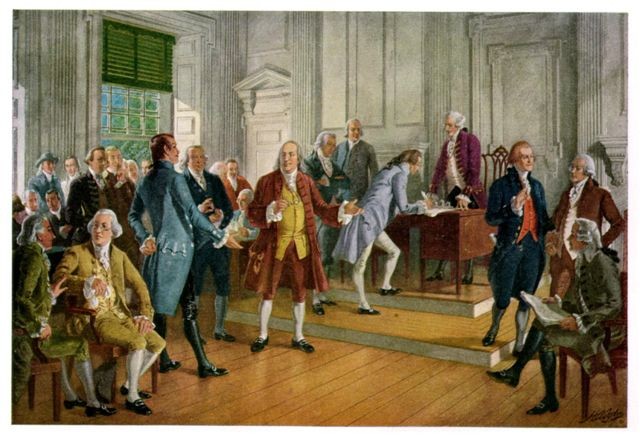After serving two, four year terms, George Washington felt that it was necessary to let another be the head of the great nation. Although the people wanted him to continue leading the country, he encouraged the people to limit the number of terms, so they would not return to the monarchy, that the people were so unhappy with. Within the address, he gave advice to the Americans on what he believes needed to stay the same, change or revise and avoid in order to keep the country moving forward.
 |
| Washington's Farewell Address 1796 |
He encourages all Americans to be united and stay united, or independence will have no hope. He states that it is not only important to be loyal to your state, but to the country as well. The towns, cities, states, and Country needs to be unified as one. Each one making the other even more important. He also address the need for not having different parties, for it will pull the country apart.
Another thing Washington addresses is the newly written constitution. He says that it is much better then the Articles, for it allows the central government more power. If the people were to follow it, the country would be safe from any internal wars. He also addresses the importance of adding new amendments, if the government is not doing its job. Washington backs up the checks and balances system, for it will keep the United States a democracy rather than a monarchy or even a dictatorship.
Washington argues the importance of money management and foreign relations. This will help our nation grow and stay strong. He states that although the country and individuals should not partake in any foreign war, they should do their best to keep the relationships with all other countries strong. He also states that their should be free trade with other countries, to keep the relationships strong.
At the end of his address, he takes full responsibility for any mistake he has made, making him just like every other common person. He is very proud of the nation that he, along with many others were able to create.


+&+sons.+Maryland+Historical+Society..jpg)






